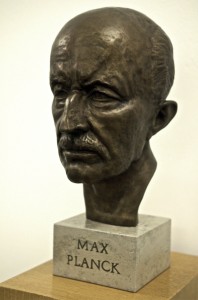Posted by Roberta Grimes • January 16, 2015 • 0 Comment
Afterlife Research, Human Nature, Quantum Physics, Understanding Reality
As a follow up to last week’s post about the wonderful Rupert Sheldrake and his  pioneering work in studying aspects of consciousness, I’m going to offer you another great TED talk that was delivered by Australian philosopher and cognitive scientist David Chalmers in 2014. Chalmers shares with us here some extraordinary insights about consciousness. And surprisingly, his TED talk has not yet been banned!
pioneering work in studying aspects of consciousness, I’m going to offer you another great TED talk that was delivered by Australian philosopher and cognitive scientist David Chalmers in 2014. Chalmers shares with us here some extraordinary insights about consciousness. And surprisingly, his TED talk has not yet been banned!
Human consciousness is primary and pre-existing. Still stuck as they are in their core dogma of atheistic materialism that insists that the universe is a clockwork machine, most mainstream scientists still find the primary role of consciousness impossible to grasp. And their obtuseness is especially surprising in view of the fact that some leading physicists have known or suspected the truth about consciousness for more than a century. Max Planck, who in 1918 won a Nobel Prize in physics as the father of quantum theory, said it well. Based upon his lifetime of research in the field of quantum physics, in 1931 he said, ”I regard consciousness as fundamental. I regard matter as derivative from consciousness. We cannot get behind consciousness. Everything that we talk about, everything that we regard as existing, postulates consciousness.”
Given the overwhelming scientific evidence that Max Planck was right, it’s astonishing that so many decades later the primary scientific dogma remains atheistic materialism. Any notion that consciousness might be more than an artifact of our brains is viewed by the mainstream scientific community as heresy, and in the UK and in some other countries even the mention of it is banned.
Fortunately I’m writing in the United States, so I’m able to share this wonderful, respectful TED talk in which David Chalmers proposes the possibility that consciousness, you know, just might be primary after all. And a blog post about it to boot.
People tell me they enjoy the links I share, so here is one while we’re at it that further illustrates the primacy of consciousness. “Terminal lucidity” is a term lately coined to refer to the fact that many of those whose brains are entirely fried before death will recover astonishing abilities as their bodies begin to die. There are a number of reports of end-stage Alzheimer’s patients and others who were helpless or even comatose unexpectedly becoming aware and chatting normally with those around them in the minutes before their deaths. No problem at all for you and me to explain, since the mind as it disengages from the body simply is regaining the powers that had been suppressed by the damaged brain’s faulty wiring. But entirely beyond the ken of mainstream scientists. An endless bounty of such peculiarities will be more readily understood once the faulty dogma of atheistic materialism is shown to be a train to nowhere, and scientists return after more than a century to trying to figure out what is true.
brain’s faulty wiring. But entirely beyond the ken of mainstream scientists. An endless bounty of such peculiarities will be more readily understood once the faulty dogma of atheistic materialism is shown to be a train to nowhere, and scientists return after more than a century to trying to figure out what is true.
David Chalmers calls the question of why we even have conscious awareness to be the “hard problem” of consciousness. And hard it certainly is! Mainstream scientists cannot begin to learn anything important about human consciousness until they stop looking for consciousness in the brain, and instead follow the lead of brilliant researchers like Chalmers and the immortal Max Planck and begin to investigate the possibility that human consciousness might be important, after all.
photo credit: <a href=”https://www.flickr.com/photos/alicepopkorn/4322458196/”>AlicePopkorn</a> via <a href=”http://photopin.com”>photopin</a> <a href=”http://creativecommons.org/licenses/by-nd/2.0/”>cc</a>
photo credit: <a href=”https://www.flickr.com/photos/fischerfotos/7408813732/”>Mark Fischer</a> via <a href=”http://photopin.com”>photopin</a> <a href=”http://creativecommons.org/licenses/by-sa/2.0/”>cc</a>